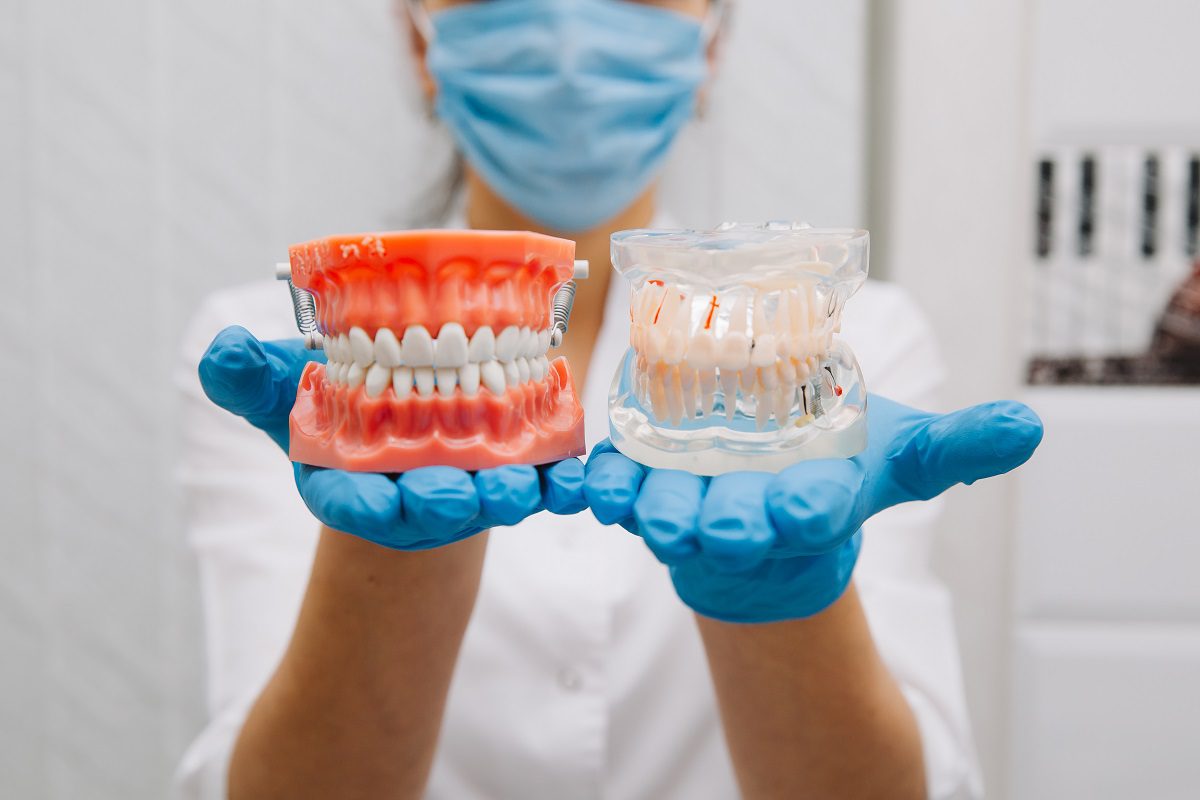

Partial and Full Dentures
Dentures are the most convenient and effective replacement for missing teeth. They are very effective, comfortable, and realistic-looking replacements for missing teeth than any other dental replacement. People who lose teeth due to tooth injury, tooth decay, or extraction are suitable candidates for dentures.
Dentures have two main types:
Partial Dentures:
These types of dentures are the ideal solution for patients with a few missing teeth. They replace teeth in the upper or lower jaw of the mouth. But to get partial dentures, you must have good oral health. Partial dentures are the ideal solution for patients with a few missing teeth. Dentists make partial dentures using your remaining teeth. If your teeth are in poor condition, your dentist may advise you to have them extracted and replace them with complete dentures. Partial dentures have two types:
- Metal Partial Dentures: made from chromium and cobalt alloy, they are much more expensive, stronger yet lighter, and more prone to adjust than plastic dentures.
- Plastic Partial Dentures: made from plastic, they are much cheaper than metal dentures. But they require careful tending to ensure no damage to the other teeth during the procedure.

Full dentures
Full dentures are the artificial, removable, acrylic substitution for the complete dental arch. They are also known as Complete dentures; they provide full coverage and adjust the entire mouth. The two main parts of complete dentures are:
- Artificial Teeth: this part constitutes artificial acrylic teeth, which provide all functions of teeth like eating, biting, and chewing to patients without any difficulty.
- Denture Base: it is a replacement for the gums and tissues, this part of the denture supports and holds the teeth in place while simultaneously protecting the damaged tissues of the mouth.

Full dentures have the following types:
- Immediate Complete Dentures: these serve a temporary purpose immediately after the tooth extraction. They provide time for gums and tissues to heal and recover from extraction.
- Conventional Complete Dentures: they are custom-made dentures according to patient needs. They fit and look like natural teeth and are worn for a long-time duration after the gums start healing in 8-12 weeks.
- Implant-supported complete dentures: they are a mix between traditional dentures and more expensive sophisticated full jaw dental implants. Implant-supported dentures are an excellent choice for anyone looking for a low-cost way to improve their ability to chew and smile.
Benefits of full and partial dentures - Heal the damaged and diseased teeth
- Pain-free
- Restores oral health
- Give you a healthier and younger appearance
- Improve your ability to eat
- Partial dentures cost less
Conclusion
To conclude, dentures are artificial teeth provided to those who suffer from tooth loss. You can choose complete or partial dentures according to your needs to satisfy your demands and take in the full bliss of life with minimum input.
Contact your Lafayette dentist, Dr. Massood Darvishzadeh, DDS at Lafayette Dental Group to learn more about dentures.
Resource:
Advantages and Disadvantages of Dentures
*Neither this nor any other content in this media is meant to prescribe, recommend, or prevent any treatment or procedure. We highly recommend that you get the advice of a qualified dentist or other medical practitioners regarding your specific dental condition.*
Services
Contact Us
3466 Mt Diablo Blvd., Suite C207
Lafayette, CA 94549
2026 © Lafayette Dental Group | All rights reserved | Powered by: Vigorant, Inc.
